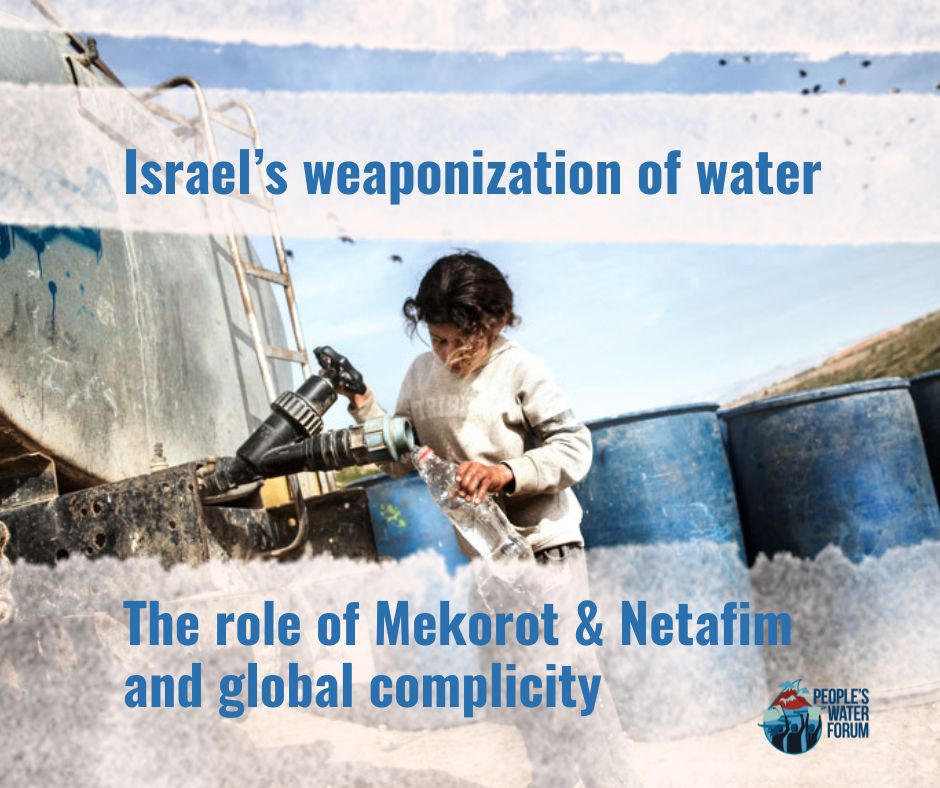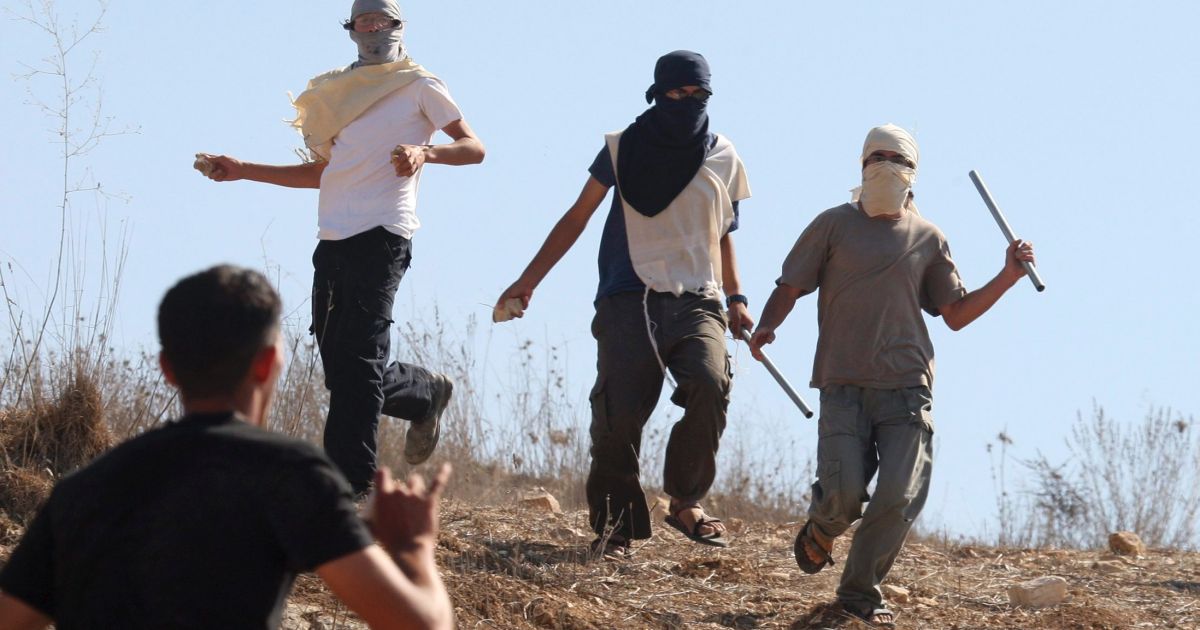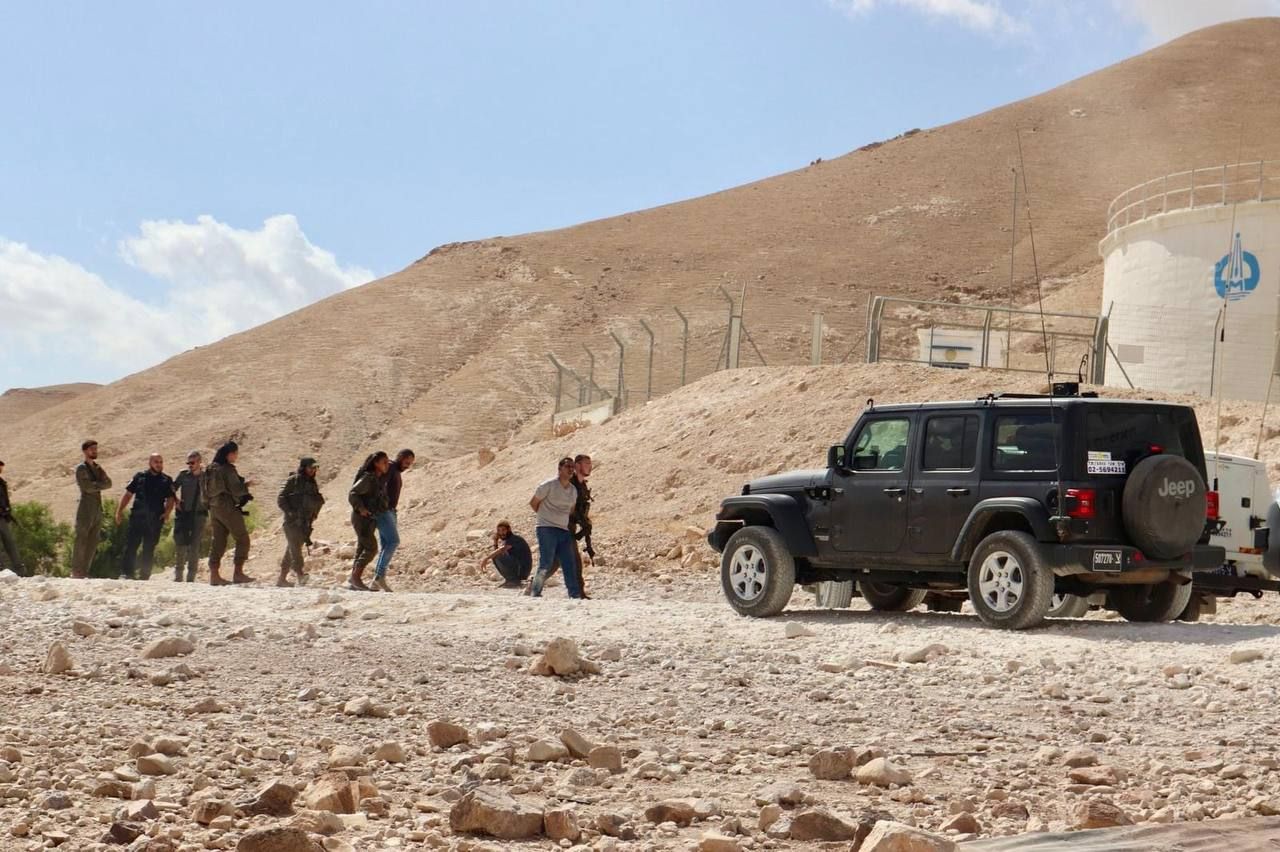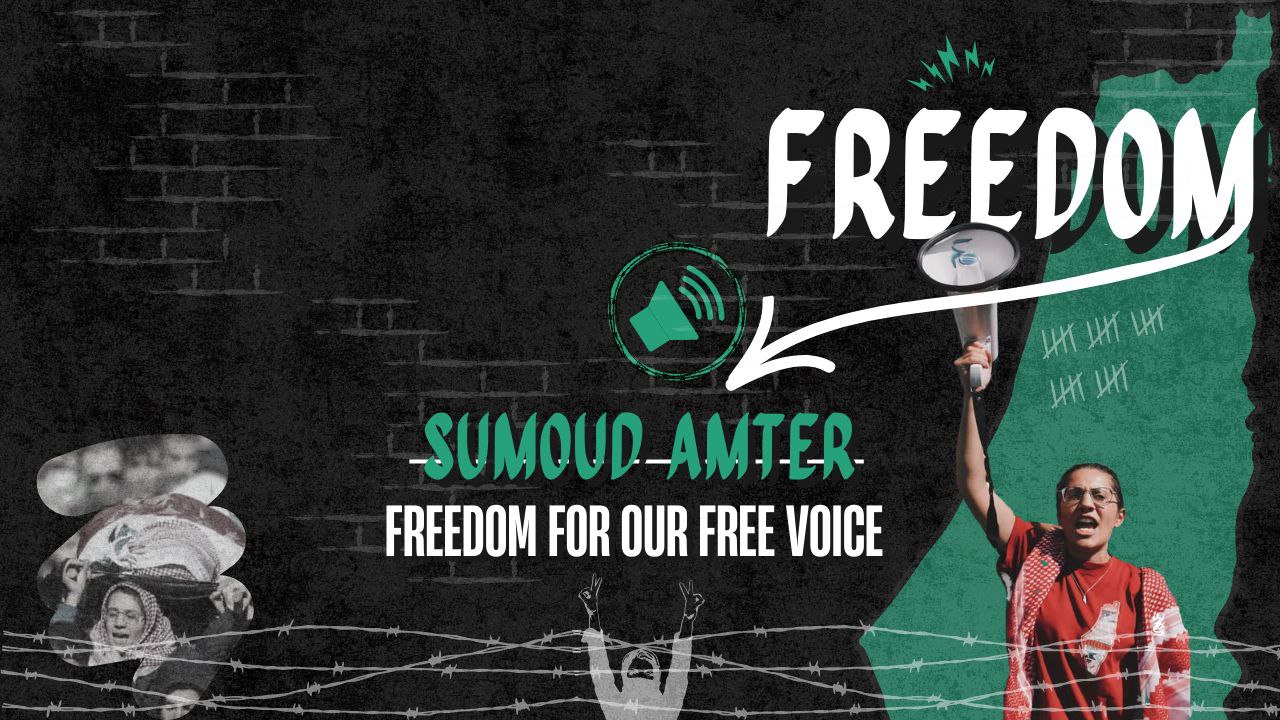In response to call for inputs “Human Rights and Starvation, with an emphasis on the Palestinian People’s Food Sovereignty” by the Special Rapporteur for the Right to Food, Michael Fakhri, members of the People’s Water Forum including: Palestinian Grassroots Anti-Apartheid Wall Campaign; Henry Thomas Simarmata (Apintlaw); Muhammad Reza Sahib and Sigit Budiono, KRuHA (People’s Coalition for the Right to Water); Meera Karunananthan, Adrian Murray, Marcela Olivera and Leonard Shang-Quartey (Blue Planet Project) coordinated a series of complementary submissions.
The objective of these complementary inputs are:
1. To identify the denial of water as an essential part of Israel’s strategy of starvation of the Palestinian population in Gaza.
2. To highlight that denying water is a long-standing Israeli practice that stands as a gross violation of Palestinian human rights, and is an integral part of Israel’s policies of apartheid, ethnic cleansing/forced displacement, and persecution against the entire Palestinian people. The current use of this practice as a component of Israel’s starvation strategy, among other genocidal acts being committed against the Palestinian people, is therefore only an exacerbation of long-existing practices.
3. To detail the impact of Israel’s water policies in the Occupied Palestinian Territory (OPT), especially Gaza, regarding the realization of the food sovereignty of the Palestinians.
4. Bearing this in mind, to give indications regarding effective solidarity and international obligations in front of Israel’s sustained and ongoing violations.
Submission 1: Israel’s weaponization of water through water pillage and “water apartheid” against the Palestinian people
Submission 2: The reality of water pillage, water apartheid, and genocide through denial of access to water
Submission 3: International obligations and solidarity to enhance Palestinian food sovereignty and stop the weaponization of water
Submission 1 – Israel’s weaponization of water through water pillage and “water apartheid” against the Palestinian people
Prepared by: KRuHA (People’s Coalition for the Right to Water)
1. The denial of water has been recognized as a central part of Israel’s genocidal acts against the Palestinian people in Gaza. The International Court of Justice (ICJ) application filed by South Africa on December 29, 2023, notes that Israel’s actions, including the deprivation of potable water, systematically aim to destroy the Palestinian population. The application specifically states that the lack of access to safe drinking water in Gaza is part of a broader strategy to deny Palestinians essential resources, exacerbating their humanitarian crisis: “Israel’s onslaught aims to promote and sustain the genocidal policies articulated by Israel’s Prime Minister Benjamin Netanyahu and other officials, who categorically stated their intent to deprive Palestinians of all electricity, food, fuel, and water, and other essentials of life.”
2. These genocidal acts of denying access to water build on a long-standing Israeli policy of water pillage and apartheid with the explicit aim of ethnically cleansing or otherwise destroying the Palestinian population. This policy is enacted, among others through:
3. Control and Overexploitation of Aquifers: Israel exerts control over key water sources in the OPT. Israel has systematically depleted and completely destroyed the aquifer in the Gaza Strip and is doing the same in the West Bank, particularly the Mountain Aquifer. Although approximately 90% of the aquifer’s recharge occurs within the West Bank, Palestinians control only about 10% of the water extractions. This disproportionate control is maintained through policies and practices that prevent Palestinians from accessing their groundwater resources. Israeli extractions far exceed those of Palestinians.
4. Economic Discrimination and Corporate Profiteering: Corporations such as Mekorot, Hagihon, IDE Technologies and Netafim exploit restricted Palestinian water access by selling water back to Palestinian communities at high prices. This commercial exploitation creates dependency on Israeli-supplied water, benefiting these corporations while perpetuating economic hardships. Additionally, Israel engages in economic discrimination by charging Palestinians higher prices for water, including desalinated water, imposing a significant financial burden on Palestinian households, particularly in Gaza.
5. Discriminatory Zoning and Planning Orders: Israel employs discriminatory zoning and planning orders that limit the development and renovation of Palestinian water infrastructure. These restrictive measures prevent Palestinians from drilling new wells or repairing existing ones, curtailing their access to groundwater resources and ensuring Israeli dominance over these critical resources.
6. Destruction and Confiscation of Hydraulic Structures: The destruction and confiscation of Palestinian hydraulic structures by Israeli authorities systematically undermine Palestinian water security. This includes demolishing wells, cisterns, and pipelines under the pretext of lacking permits, which are nearly impossible for Palestinians to obtain. From 1998 to 2020, approximately 19,828 demolition orders were issued for Palestinian-owned structures in Area C of the West Bank, significantly impacting water infrastructure. This destruction not only disrupts water access but also serves to appropriate Palestinian water resources for Israeli use, further entrenching control over the region’s water supply.
7. Israel systematically commits the crime of water pillage in the West Bank, a violation of the IV Geneva convention, amounting to a war crime. Additionally, Israel uses water in its multilayered policies constituting the crime of apartheid. “Water apartheid” derives from the term apartheid, which is enshrined in both scholarships and international norms, namely the UN Declaration on Right to Development and International Convention on the Elimination of all Forms of Racial Discrimination, within the UN Convention on the Suppression and Punishment of the Crime of Apartheid, and is also codified as a crime against humanity in the Rome Statute.
8. According to Palestinian human rights organization Al Haq, “Israel illegally appropriates Palestinian land, pillaging Palestinian water and then discriminately allocates water supplies to its citizens and to illegal Israeli settlements at the expense of Palestinians, who own and are entitled to access these water resources. As a result, Israel’s ‘water-apartheid’ facilitates gross and systematic denial of Palestinians’ rights to adequate water, institutionalizing a fragmentary regime of racial domination and oppression over the Palestinian people” According to this report, Israel’s control over the Palestinian water sector is entrenched through a series of military orders implemented since 1967, which have established a regime of systematic oppression and domination over Palestinian access to water. These military orders restrict Palestinians from drilling new wells or rehabilitating existing ones and enforce stringent quotas on their water usage, thereby creating severe disparities between Israeli and Palestinian water access and usage.
9. Water apartheid takes place where availability of, access to, and the sustainability of water are exploited and manipulated by certain actors with the sole purpose of causing long and protracted suffering of peoples and communities with specific backgrounds. This is the case across the OPT, especially Gaza, where Israel “weaponizes water” to impact illegitimate targets of armed conflict.
10. Food sovereignty consists of both the right to adequate food and its nexus with the right to water. Water sovereignty is necessary for food sovereignty. “Water apartheid” is based on security and military pretexts and objectives. This includes control and displacement of populations.
Submission 2: The reality of water pillage, water apartheid, and genocide through denial of access to water
Prepared by: Blue Planet Project
1. Israel’s policy of starvation, including the denial of access to water, is rooted in a 76 year old Israeli goal to ethnically cleanse the Palestinian people.
2. Since the establishment of the state of Israel in 1948, Palestinian communities, and in particular the Bedouin communities in the Naqab (Negev), have faced systematic denial of access to water, which has been a critical tool of dispossession and marginalization. Despite being Israeli citizens, Bedouin communities are often denied basic water services. This deliberate policy aims to force the Bedouins to abandon their ancestral lands and move into government-planned townships. Unrecognized Bedouin villages, which are home to tens of thousands of people, are not connected to the national water grid, which compels residents to rely on expensive and unreliable water deliveries. Lack of access to water severely impacts Bedouin agricultural practices, health, and overall quality of life. Denying water is part of a broader strategy to uproot Bedouin communities from their lands, reflecting a long-standing policy of ethnic cleansing through resource deprivation.
3. Since the Israeli occupation of the West Bank began in 1967, Palestinians have faced severe restrictions on their access to water, used as a tool for colonization and ethnic cleansing. In Bardala in the Northern Jordan Valley, Israeli authorities have systematically destroyed water infrastructure and severely limited water supplies to Palestinian residents. In 2017, Israeli soldiers demolished main pipelines and confiscated water pipes, forcing the villagers to buy water from Mekorot at exorbitant prices. In Khallet Makhoul, Palestinian Bedouins live mere meters from water pipelines but are forbidden from accessing them. These pipelines exclusively serve illegal Israeli settlements, leaving Palestinian families to struggle with purchasing costly trucked water. Al Hadidiya in the Northern Jordan Valley illustrates the ongoing struggle against Mekorot, as it continues a court battle for the right to sufficient water access. These cases highlight how water denial is systematically employed to displace Palestinian communities, facilitate the expansion of illegal settlements, and enforce an apartheid regime in the West Bank.
4. Since 1967, the people of Gaza have faced severe and escalating water crises as a result of systematic and deliberate Israeli occupation policies that restrict access to water resources, destroy water infrastructure during military operations, and degrade the natural water sources available to Palestinians in Gaza. This is compounded by the prohibition of importing materials necessary to maintain, repair or expand water facilities. Already before the start of the genocide on October 8, 95% of the water from Gaza’s sole aquifer was unsuitable for consumption, leading to appalling sanitary conditions and high rates of waterborne diseases. Only 4% of Gaza’s households had access to safely managed water. The lack of adequate water facilities have long forced Gazans to consume contaminated water, significantly increasing the incidence of waterborne diseases and other health issues or to rely on purchasing water from Israel’s state-owned company, Mekorot, at prices unaffordable for many. According to OCHA, “Gaza depends on three Mekorot water pipelines that run from Israel to provide drinking water. Only one of them – Bani-Saeed – is currently [March 2024] operational, but only at 47% of its capacity. The other two have been non-operational for months.”
5. During the current genocide, the denying water to Gaza was one of the first steps and a critical component of the broader Israeli tactic of starvation faced by Palestinians. The UN and various humanitarian organizations have highlighted the severe impact of these tactics on Gaza’s children, many of whom suffer from malnutrition and lack access to clean water. The combination of water scarcity, poor water quality, and food insecurity creates a dire situation that threatens the health and survival of the population, particularly the most vulnerable.
6. Israel’s array of tactics also include flooding tunnels in Gaza with seawater. Such actions pose a grave threat to the already fragile water and sewage infrastructure, risking long-term contamination of Gaza’s aquifer and soil. Environmental experts warn that this could lead to ecological catastrophe, leaving Gaza without drinkable water and further devastating agricultural capacities.
Submission 3: International obligations and solidarity to enhance Palestinian food sovereignty and stop the weaponization of water
Prepared by: Palestinian grassroots Anti-Apartheid Wall Campaign
1. The impact and reach of the policies of denial of water as part of Israeli war crimes, the crime of apartheid and genocide, go beyond the borders of the territories controlled by Israel. Commercial actors and Israeli state institutions, such as Mekorot, Israel’s national water company, and other corporations such as Hagihon, IDE Technologies, Netafim and others, are crucial in implementing and profiting from this policy.
2. Mekorot’s practices have created the pre-conditions for Israel to be able to completely cut off the Palestinian population in Gaza from clean water. Mekorot has systematically overexploited the Gaza Aquifer leading to its contamination. The company’s extensive water extraction, primarily from Palestinian resources, has led to a significant drop in water levels, rendering Palestinian wells increasingly saline and often dry.
3. Mekorot also plays a central role in the discriminatory allocation of water resources contributing significantly to what has been described as “water apartheid” against Palestinians. Mekorot’s infrastructure development is part of Israel’s illegal settlement enterprise, with advanced large-diameter pipes and high-capacity storage reservoirs for settlers, while Palestinian areas, if at all, receive smaller, insufficient pipes, exacerbating water scarcity. Furthermore, Mekorot frequently reduces water quotas to Palestinian communities, while Israeli consumption continues unchecked. This manipulation not only undermines Palestinian water security but also forces Palestinian communities to purchase water from Mekorot at inflated prices, reinforcing economic dependencies and contributing to the broader Israeli control over Palestinian resources.
Drawing from OCHA, “Gaza depends on three Mekorot water pipelines that run from Israel to provide drinking water. Only one of them – Bani-Saeed – is currently operational [as of March 2024], but only at 47% of its capacity. The other two have been non-operational for months.”
4. Customary international law, as codified in the International Law Commission (ILC) Articles on State Responsibility, obligates states not to aid or assist in the maintenance of an illegal situation resulting from serious breaches of peremptory norms, which include apartheid. The current situation at hand, involving genocide and crimes against humanity, in addition to the ongoing international humanitarian law and human rights violations related to the overall prolonged military occupation and apartheid, is one of these serious situations. States have furthermore the obligation to prevent and punish genocide.
5. States therefore are under the obligation to exert all reasonable influence and efforts, including imposing immediate and effective lawful sanctions on Israel, most importantly a two-way military embargo.
6. States therefore also have to ‘deny access to public support and services for companies ‘involved with gross human rights abuses’, such as acts of genocide. Third States engaged in commercial activities with companies potentially implicated in acts of genocide in Gaza, for example through public procurement, as shareholders, or through public pension fund and other investments should terminate such contracts and exclude such companies.
7. International commercial relations with Mekorot and other corporations involved in Israel’s crimes are used to keep its water apartheid, water pillage and genocidal acts going. This brings Third States and actors in Third States, which cooperate and do business with these corporations, in violation of their own obligations under international law.
_________
8. The international community has the immediate obligation to ensure Israel complies with the ICJ’s provisional orders, including ensuring clean and sufficient water is made available to the entire population in Gaza.
9. While it is absolutely crucial that humanitarian aid, including water will enter the Gaza Strip at scale now, this will not solve the question of Israel’s structural denial of access to water and the systematic creation of water dependency as a form to undermine any possibility for food sovereignty to the Palestinian people.
10. Food sovereignty and an end to the weaponization of water can only be guaranteed if Israel stops the overall policies of pillage, apartheid, genocide, and occupation.
11. The international community has the obligation to take all effective and proportionate measures available to prevent, end, and punish the crimes of genocide, apartheid, and pillage.
12. In the long term, the provision of aid to Palestinian communities, including food and water, has proven to guarantee sustainability to Israeli policies of dispossession and Israel’s crimes and to further undermine Palestinian food sovereignty. Israel, as the Occupying Power, has a duty to restore and maintain public order and civil life in the territory that it occupies. Under this obligation, the Occupying Power has the responsibility for the welfare of the occupied territory’s population. Israel has systematically worked to avoid this responsibility and international aid is de facto paying for the costs of the occupation Israel is unwilling to pay, making Israel’s project of colonization and apartheid economically viable and profitable. Furthermore, aid fosters economic dependence, allowing Israel to maintain control over resources and movement, undermining Palestinian self-determination even further.
13. It is therefore fundamental to understand that humanitarian aid is central as a stop-gap solution in front of the international community’s existing failure to prevent, end, and punish genocide and apartheid in time. It does not in any way exempt Israel from the responsibility to shoulder the costs of its occupation, war crimes and crimes against humanity. Neither does it exonerate the international community from the responsibility to impose effective measures, in particular sanctions and not to aid and assist Israel in its violations of international law.




